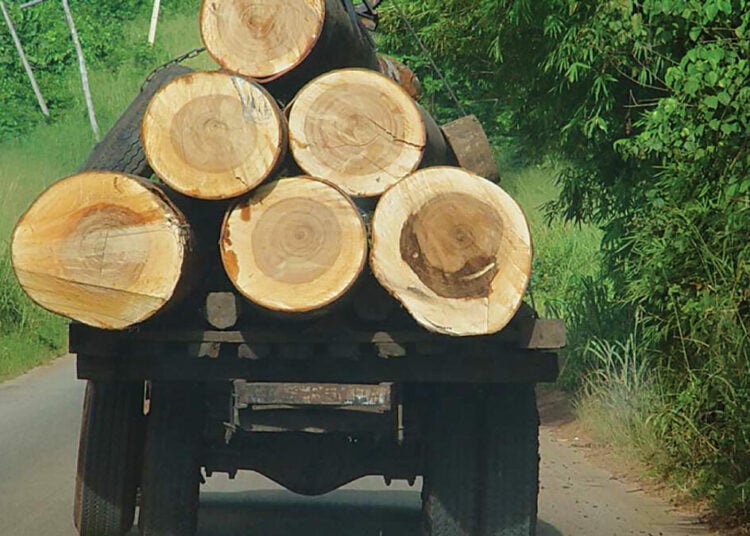Environmental experts have raised an alarm over Nigeria’s rapidly shrinking forest cover, warning that the country loses between 350,000 and 400,000 hectares of forest annually. They say this development threatens food security, biodiversity, and human health.
Speaking at a session on climate change and environmental reporting under the Women Empowerment and Climate Resilience Initiative (WECRI) in Kaduna, environmental data analyst Jonah Birga said the situation has reached a critical level, particularly in States like Kaduna, where deforestation continues to rise due to human activities.
“Deforestation is not just about cutting down trees; it involves multiple land-use pressures such as mining, grazing, logging, and charcoal production.
Urban areas are major drivers, especially with the high demand for charcoal in residential neighbourhoods like those in Zaria Local Government Area.”
He added that the effects of deforestation extend beyond environmental degradation to include profound economic and health implications.
“Mining, for instance, affects land quality and causes degradation not just at mining sites but across surrounding communities. It is a complex multiplier of many environmental and health issues”.
Birga encouraged journalists to use satellite imagery and local case studies to show “before and after” impacts of deforestation, adding that interviews with community members about changes in forest access or farming yields help make the crisis more relatable and evidence-based.
Also speaking at the workshop, the Director General of the Nigerian Conservation Foundation (NCF), Joseph Onoja, described deforestation as one of Nigeria’s most significant contributors to climate change and greenhouse gas emissions.
“Climate change affects every aspect of our lives, and deforestation alone accounts for about 10 per cent of greenhouse gas emissions. When forests are cleared, biodiversity is lost, livelihoods are destroyed, and our ecosystem becomes more fragile”.
Dr Onoja urged journalists to play a stronger role in environmental protection by translating complex climate science into simple, compelling stories the public can understand.
“It is the media’s duty to see beyond the ordinary and tell stories that resonate with the people,” he said.
He also called on journalists to hold government agencies accountable for enforcing environmental protection laws.
“If these agencies are not doing their jobs or are not empowered, journalists must call out those responsible. Forests don’t speak, journalists give them a voice”.
He says protecting nature remains the most sustainable path to national productivity. “A sick population cannot be productive. We are better off leaving nature as it is — in this case, the forest,” he added.
The session was part of the Women Empowerment and Climate Resilience Initiative (WECRI), a six-month pilot project supported by UK International Development under the Partnership for Agile Governance and Climate Engagement (PACE) programme.





